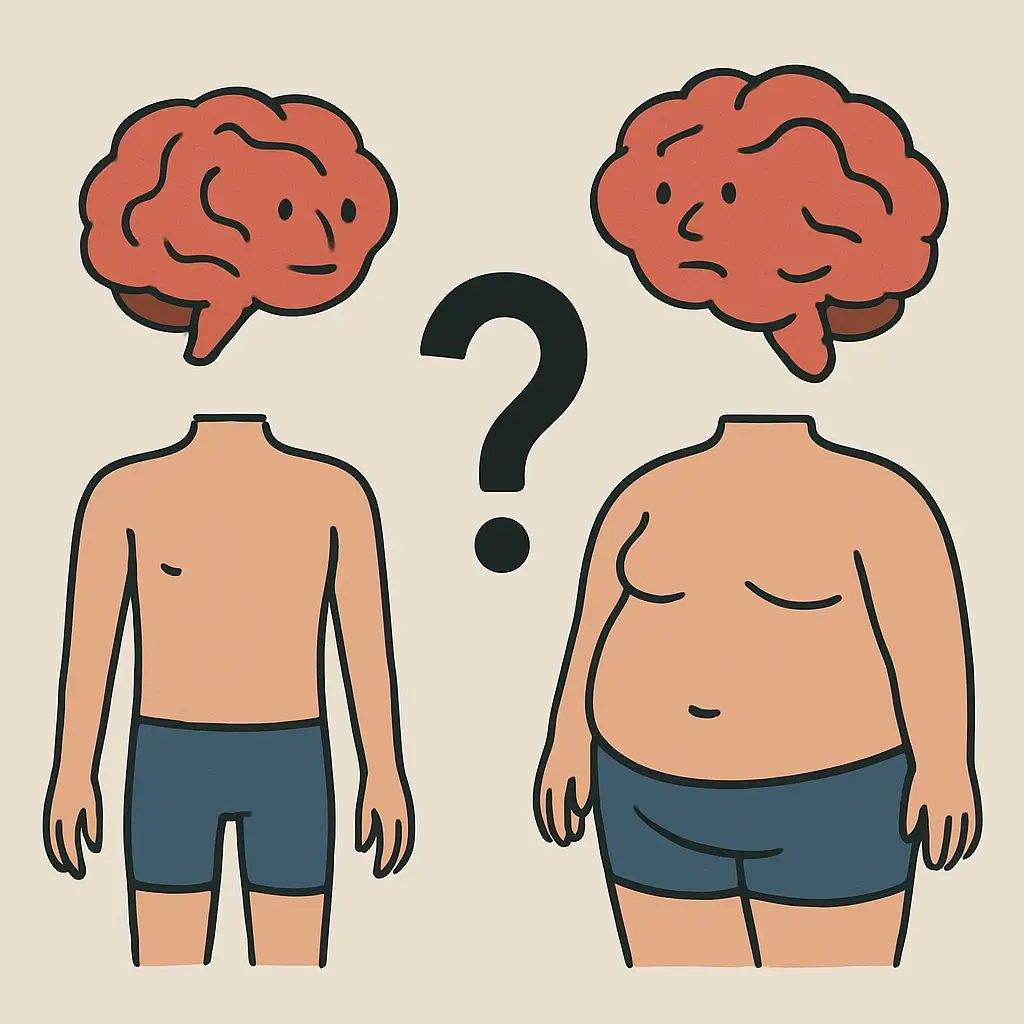Introduction
Our relationships with our bodies are profoundly complex. These relationships are shaped by personal experiences, cultural norms, and societal expectations. For many, the concepts of being “thin” or “fat” carry not just physical connotations but emotional and psychological weight. Behind these labels lies a labyrinth of beliefs, feelings, and motivations—all tied to how we perceive ourselves and the world around us.
The Psychology of Thin
In many cultures, thinness is often equated with success, self-control, and desirability. These associations are reinforced by media portrayals, societal pressures, and even personal validation. Thinness can become a symbol of discipline and achievement, particularly in environments where body image is tied to status or self-worth.
Yet, this idealization comes with challenges. For some, the pursuit of thinness can lead to unhealthy behaviors, obsessive thoughts, and an ever-elusive sense of satisfaction. The fear of gaining weight can create anxiety, while the constant need to maintain or achieve thinness can overshadow other aspects of well-being.
At its core, the psychology of thin often revolves around control. For many, controlling their weight becomes a way to manage other, less tangible fears or uncertainties in life. Thinness might feel like an armor—protecting against judgment or offering a sense of accomplishment. But it’s important to ask: At what cost?
The Psychology of Fat
While thinness is celebrated in many societies, fatness is often stigmatized. This stigma can create a cycle of shame, self-criticism, and isolation. The burden of being labeled as “fat” often goes far beyond physical health concerns, impacting mental health, self-esteem, and even interpersonal relationships.
However, fatness can also carry different meanings. For some, it represents comfort, abundance, or resilience. Bodies store fat for survival—an evolutionary trait—yet modern narratives frequently overlook this natural function. Instead, the emphasis is placed on appearance, often stripping individuals of the context behind their body composition.
The psychology of fat also includes how people are treated by society. Biases against larger bodies can lead to inequities in healthcare, workplace discrimination, and social exclusion. These external pressures often compound the internal struggles individuals face, creating a deeply entrenched cycle of shame and rejection.
The Desire to Change
Whether someone identifies as thin, fat, or somewhere in between, the desire to change is almost universal. This desire is often fueled by dissatisfaction, societal pressure, or a yearning for something perceived as “better.” But what does “better” truly mean?
For many, change begins with an external focus: losing weight, gaining muscle, or altering physical appearance. Yet, the most sustainable transformations are often rooted in internal shifts—adjusting mindsets, habits, and relationships with the self.
The desire to change is not inherently negative. It can be a powerful motivator for growth and self-improvement. However, it’s crucial to distinguish between change driven by self-compassion and change driven by self-criticism. The former fosters long-term well-being, while the latter often leads to frustration and burnout.
Finding Balance in the Journey
Change is not linear, nor is it one-size-fits-all. Each person’s journey with their body is deeply individual, shaped by unique experiences and perspectives. To navigate the psychology of thin, fat, and change, it’s helpful to:
- Shift the Narrative: Redefine success in terms of health, happiness, and functionality rather than appearance alone.
- Practice Self-Compassion: Recognize that everyone has insecurities and struggles. Being kind to yourself fosters a more positive mindset.
- Challenge Societal Norms: Question cultural ideals that equate thinness with worth and fatness with failure.
- Seek Support: Whether through therapy, coaching, or community, having a support system can make the journey more manageable.
- Celebrate Progress: Acknowledge small wins and shifts in perspective, not just physical changes.
Conclusion
The psychology of thin, fat, and the desire to change is not about choosing one path over another. It’s about understanding the deeper layers of why we think and feel the way we do about our bodies. By shifting the focus from external validation to internal well-being, we can cultivate a more compassionate and sustainable relationship with ourselves.
Change is possible, but it starts from within. Let’s strive for a world where bodies of all shapes and sizes are seen not as symbols of success or failure, but as vessels deserving of care, respect, and love.
Related posts:
- Stop Thought Viruses: I’m Old and That’s Why I Have Constant Neck Stiffness Are you facing neck stiffness or limitations? Join Dr. E. from Modern Manual Therapy for a seminar on how self-limiting beliefs affect recovery. Explore the biopsychosocial model, the importance of mindset, and how health beliefs impact treatment outcomes. Don't let outdated beliefs hold back your healing!...
- Why Wellness Isn’t About Finding a ‘Magic Button’ Wellness isn’t a quick fix; it’s a journey of understanding your body’s signals and making intentional changes for lasting improvements. Over time, habits can create imbalance. Massage therapy provides stillness and promotes self-reflection. It’s about connecting with your body and mind for true healing. Discover how to embrace a balanced...
- Boundaries: Bridges to Peace, Not Walls of Separation In a world demanding more than we can give, setting boundaries is an essential act of self-compassion. With healthy boudaries discover how to cultivate peace in your life....
- Are the Numbers Helping? What's with all the numbers in health and fitness - and do they help?...

